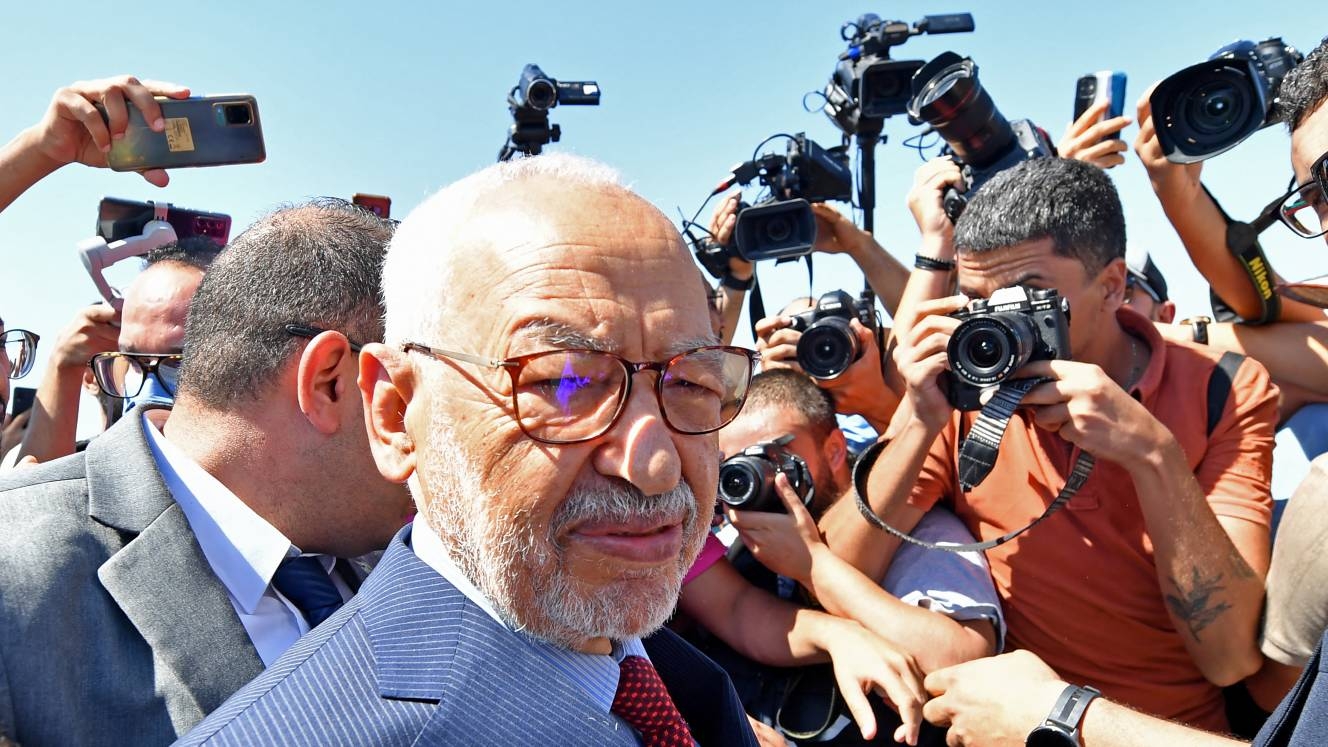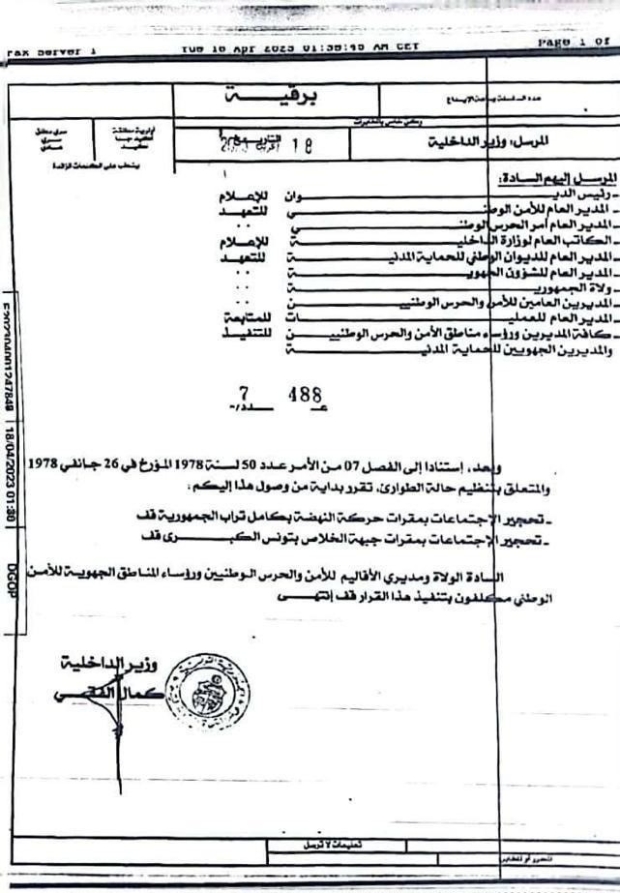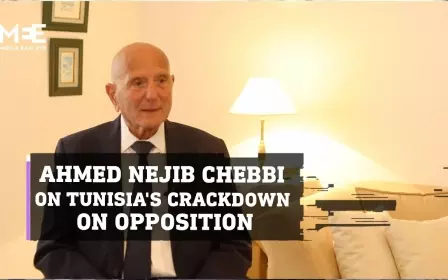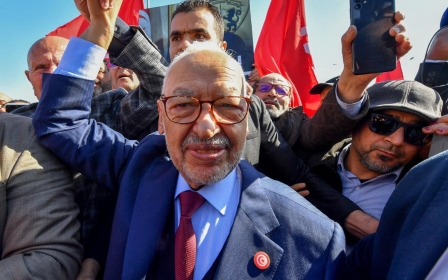Tunisia: Ennahda and National Salvation Front meetings banned, document shows

Tunisia's minister of interior has banned two prominent opposition groups, the National Salvation Front (NSF) and the Ennahda movement, from holding meetings, a document obtained by Middle East Eye shows.
A decree signed on Monday by Kamal al-Feki instructs security services and interior officials to "immediately" prohibit Ennahda from meeting across the country and the National Salvation Front from gathering in the capital.
The decree came the same day that Ennahda's leader Rached Ghannouchi was arrested when security forces raided his home and took him to a police station for questioning. He was reportedly transferred to a hospital when his health deteriorated.
Security forces also raided the movement's main headquarters on Monday and asked individuals to leave it after a statement was issued about Ghannouchi's arrest. They were later shut down and has remained closed.
New MEE newsletter: Jerusalem Dispatch
Sign up to get the latest insights and analysis on Israel-Palestine, alongside Turkey Unpacked and other MEE newsletters
On Tuesday, security forces arrested three senior Ennahda figures - Muhammad al-Qumani, Belkacem Hassan and Muhammad Sheniba - who took part in talks with the NSF, the largest opposition bloc standing against President Kais Saied.
Ennahda controlled the majority of seats in the Tunisian parliament until March 2022 when Saied suspended it, ushering in an era of rule by decree and a constitution empowering Saied's one-person rule.
The NSF is a political alliance formed in April 2022 to rescue the country from political deadlock following parliament's suspension.
Issam Bargougui, an MP and leader of al-Mustaqbal parliamentary bloc, told MEE on Tuesday that Tunisia has reached a point where "there is no democracy, freedom, and rule of law".
Bargougui noted that Saied targetting of Ennahda and NSF comes after he made a blatant threat against the country's judiciary last month.
'There is no democracy, freedom, and rule of law'
- Issam Bargougui, Tunisian MP
"Saied famously made a statement, telling judges that 'who dares to acquit them is their partner'. The situation is terrible," he said.
"Ghanouchi is not allowed to see his team of 40 lawyers, as he is being questioned under the terrorism act, which blocks access to lawyers in the first 48 hours of the arrest."
The NSF, he said, does not have offices, but has been using former Tunisia president Moncef Marzouki's Al-Irada's party office in Tunis to hold its meetings, make public statements and brief journalists. This is is why the decree only bans the party's gatherings in the capital.
"This caused a headache to Saied who decided to slam shut this door," said Bargougui.
'Laughable charges'
Ghannouchi's daughter, Yusra, said on Twitter that her father was arrested after being summoned previously over "laughable fabricated charges".
"My father had willingly gone to the numerous interrogations for which he was summoned by the coup’s in-justice system for laughable fabricated charges," she wrote.
"But Saied chose to order the raiding of his house & his arrest after sunset on the holiest night of the month of Ramadan."
The NSF was founded by Ahmed Nejib Chebbi, a prominent left-wing politician and veteran Tunisian opposition figure who opposed former president Zine el Abidine Ben Ali's rule.
In an interview last month, he told MEE that political factions need to unite against Saied's one-man rule if the country wants to get out of the economic crisis.
"Therefore, it is necessary to... unite political and trade union forces to demand a national dialogue that will open the way for Tunisia's exit from the crisis," he said.
In February, Ghannouchi, a fierce critic of Saied's power grab, appeared in court after being summoned by a judge from the counter-terrorism prosecutor’s office, and said in a statement after arriving at court that Saied was attempting to suppress political opposition and muzzle free speech.
Middle East Eye delivers independent and unrivalled coverage and analysis of the Middle East, North Africa and beyond. To learn more about republishing this content and the associated fees, please fill out this form. More about MEE can be found here.





